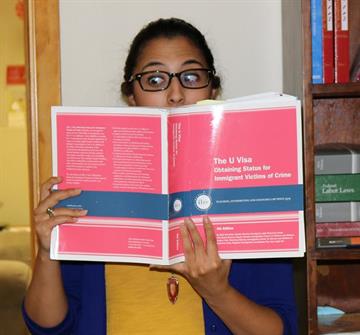Skills Development
 As a student in the Immigrant Rights Clinic, you will typically work in pairs and have direct responsibility for your cases.
As a student in the Immigrant Rights Clinic, you will typically work in pairs and have direct responsibility for your cases.
You will:
- interview clients and witnesses
- prepare detailed declarations
- write motions and complex legal briefs
- develop factual evidence to support clients’ claims
- appear and argue in court (if you have at least 45 credits)
Merits hearings in immigration court are similar to trials, providing you the opportunity to take testimony, defend clients during cross-examination, work with expert witnesses and make oral arguments. Administrative and federal appeals give you additional experience writing legal briefs.
In addition to providing individual representation, you have the opportunity to undertake policy and advocacy projects around immigrant rights at the local, state and national levels. Such projects may include drafting legislation, writing reports, preparing training materials, collaborating with community organizations in developing strategies for a particular campaign, amicus briefing or participating in impact litigation. These projects are designed to help you explore various ways to engage in social justice work and develop transferrable skills that are applicable to a wide range of careers post-graduation.